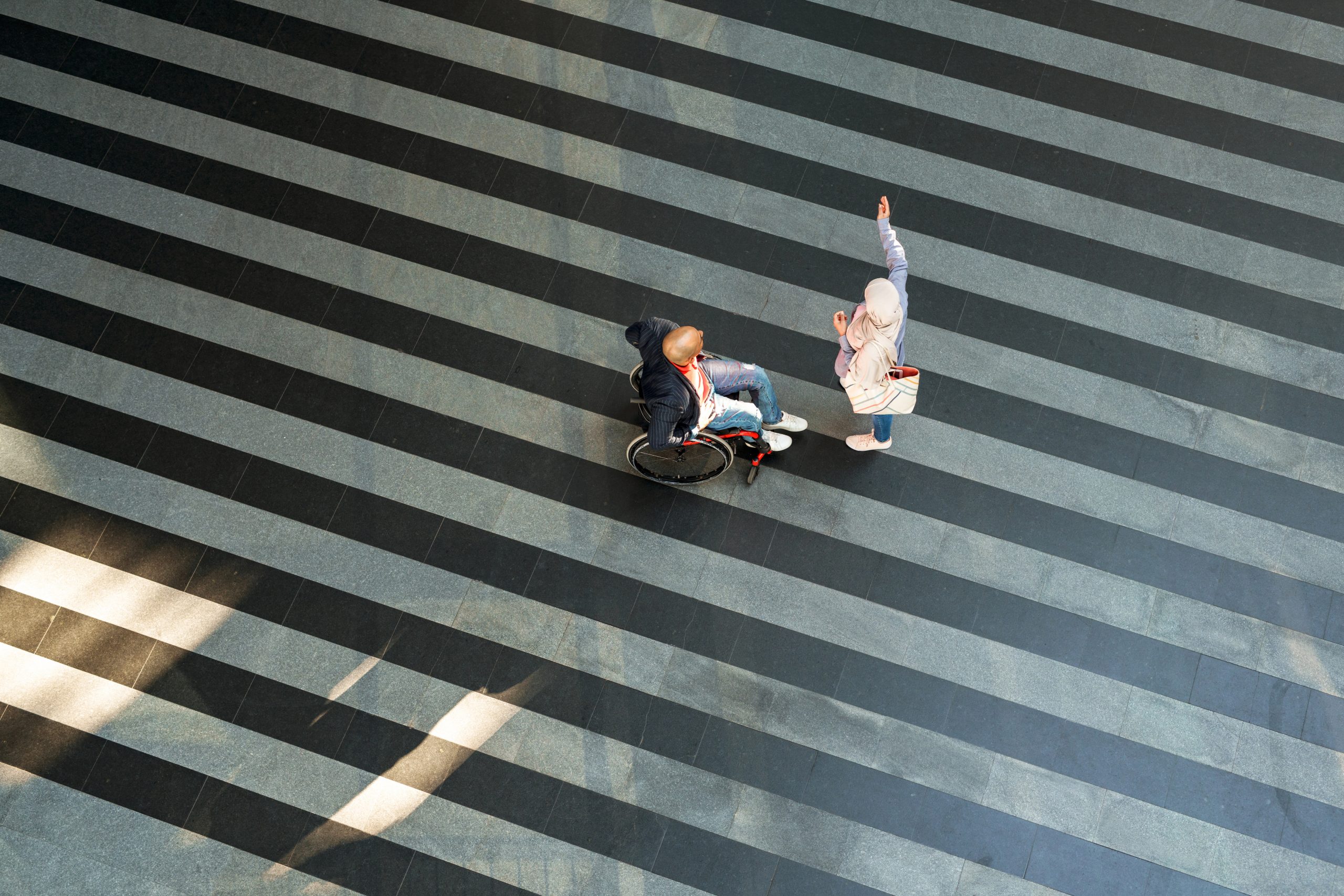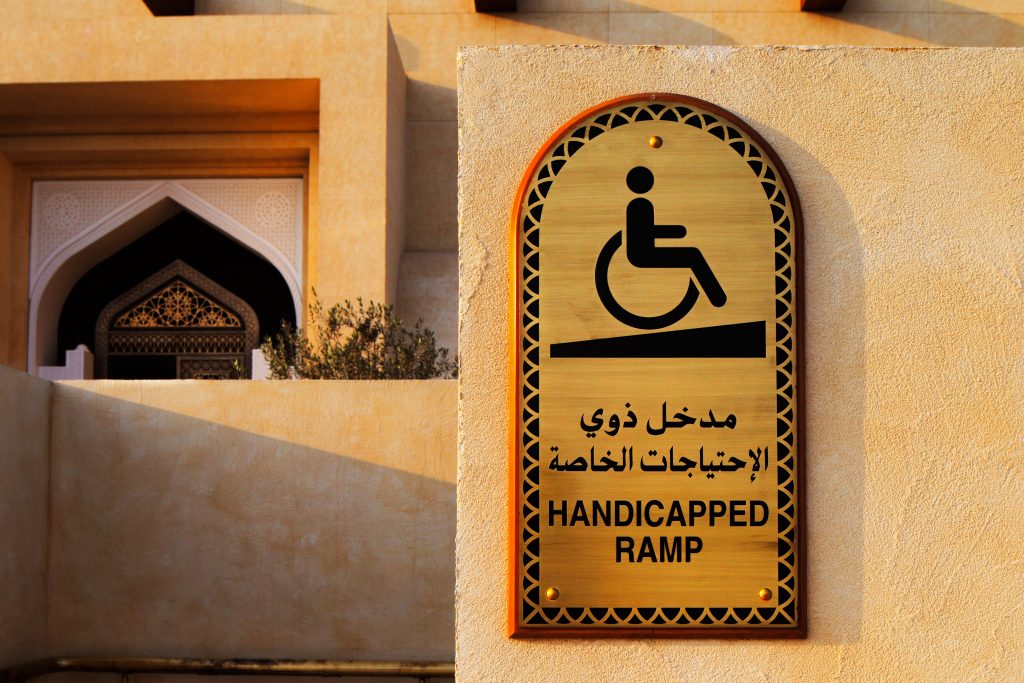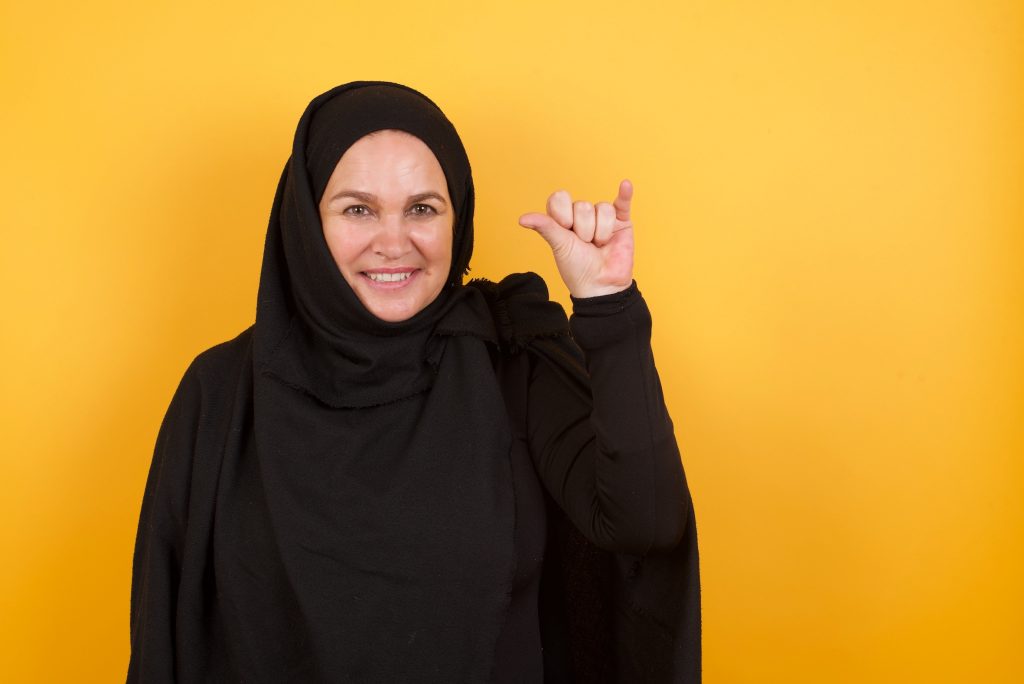#Life
Why Do We Need Discussions On Disability At Our Mosques?
Published

December 3rd marks the International Day of Persons with Disabilities.
This day was first proclaimed by the United Nations General Assembly resolution back in 1992. It has led global campaigns on disability inclusion and acceptance not just by persons with disabilities, but those without disabilities working in governments, law firms, corporate businesses, and NGOs. It is an act of solidarity, but is mostly a means to raise awareness on some of the everyday barriers that people with disabilities face.
December 3rd is thus a reminder of the rights of persons with disabilities.
Keep supporting MuslimMatters for the sake of Allah
Alhamdulillah, we're at over 850 supporters. Help us get to 900 supporters this month. All it takes is a small gift from a reader like you to keep us going, for just $2 / month.
The Prophet (SAW) has taught us the best of deeds are those that done consistently, even if they are small. Click here to support MuslimMatters with a monthly donation of $2 per month. Set it and collect blessings from Allah (swt) for the khayr you're supporting without thinking about it.
It is a call to action towards building a more inclusive and accommodating world towards people with disabilities.
Community care is an integral part of Islam which inadvertently includes disability care.
People with disabilities are an Amanah (protected trust) from Allah 




Disability has been, therefore, very much part of Islamic tradition simply because Allah 



Islamic history may show this, but today, a lot of our mosques are not fully accessible. This leads to a lot with disabilities struggling to enter community centers to pray, that a lot choose to pray at home. The minimal attendance of people with disabilities within our community centers, due to the barriers they face, has increased misconceptions and assumptions related to people with disabilities. This, in result, makes it another barrier that people with disabilities face.
A lot of the hurdles people with disabilities face within our community are not necessary. They can be easily removed, primarily through discussion, understanding, and accommodation.
An effective way to start this is by arranging khutbah—Friday sermons—on the disability experience within our mosques.
Below are the reasons why we need discussions on disability at our mosques:
1. It shows people with disabilities that they matter within our community
An inaccessible venue is another way of indicating that it was unexpected for an individual with a physical, visual, or hearing disability to show up. It is a subtle and sometimes direct way to suggest that they do not belong.
I was born with a physical disability and have always needed assistance with stairs. It only became harder to be carried after using the wheelchair. I would still try to show up within community centers to pray, but I sometimes wished not to have the unnecessary attention for simply trying to enter a venue. There was general confusion from others on how to help and how to state not to help respectfully. The prayer room had more stairs that were a lot higher. It was not possible to have me carried to the prayer room, especially with rugs, and my wheelchair. I would, therefore, pray away from everyone else.
Congregational prayer is part of Islam, but I felt very much separate from the congregation.
It was not only during prayer time but most discussion and activity. Children with disabilities that grow up to be adults have learned to adjust, but it is only natural to want to be part of our community. It is very natural to need to know that us showing up matters, especially when we face so many imposed physical and attitudinal barriers that indicate otherwise.
A khutbah on disability is a means to acknowledge our existence and acceptance—it is a way to show that we matter, too.
2. It decreases discomfort around disability
The topic of disability is ironically considered taboo, regardless of disability being part of the human experience. It is mostly wished not to acquire a disability during old age, even if it is natural. Disability is thus deemed as something bad—something to resist.
There is also the general confusion on how to treat us and preference to not have us show up when most venues are not accessible. This only adds to the discomfort around disability that people with disabilities face the risk of being ostracized.
Authentic representation on disability, especially with the support of non-disabled community leaders and imams within our mosques, allows our community to gain awareness on the disability-lived experience. Awareness is needed as it is a means for people with disabilities—and their family members—to show the fruits and blessings from the disability experience. This is a means to decrease discomfort around the topic of disability—and disabled individuals—and in turn build a more accepting environment.
3. It removes assumptions and misconceptions on disability
There is little to no discussion on disability, and because of this, there is the general misrepresentation of the disability experience. The little discussions that we have are usually by non-disabled individuals that may not have been exposed to the disability lived experience. This increases the chance of assumptions, and misconceptions, especially with the prevalence of stigma associated with disability.
It is the duty of believers to remove stigma towards a reality that Allah 

Non-disabled community leaders and imams have this duty to advocate with people with disabilities and their families.
Our collective responsibility is to see how to remove assumptions and misconceptions on disability, especially within our mosques, so that it is the safest of places for people with disabilities to participate and pray.

Good effort to accommodate but the language in this sign is problematic. It has a negative and degrading historic connotation. People with disabilities are not “crippled” “handicapped” “mute” or “dumb”.
4. It is the right of people with disabilities, their families, and a social responsibility to fulfill
The function of a khutbah is to address a congregation.
It is a means to address the Muslim community.
The topic of disability is a Muslim matter simply because there are people with disabilities within our city and our Muslim communities.
Topics chosen during khutbah are usually to address communal needs within our Muslim community.
Disability care is a need within our community—it is a right of people with disabilities and their families.
The practice of accommodation was shown within Islamic history that we need to ask ourselves why accommodation is rarely part of the conversation within our Muslim communities today. Muslims with disabilities are accommodated by Allah 
People with disabilities are an Amanah (protected trust) from Allah 
It is a form of neglecting our social responsibility as not just human beings but Muslims.
The attempt to have khutbahs on disability is a means to fulfill our social responsibility as Muslims and the rights of people with disabilities and their families.

Quran in Braille
5. It is a means of collective—and progressive—growth
Our community can only holistically grow if everyone in our community somehow participates. Everyone has something to offer whether a child or an elderly. We all have a perspective to bring. A khutbah on disability that prioritizes authentic representation brings in the disability perspective. It removes some of the barriers people with disabilities face for them to be given the space to participate, too.
People with disabilities are repeatedly put in a position where they have to remove hurdles. They are, therefore, naturally put in a position to find solutions. This type of mindset is needed within our communities as there are many problems within the community that need to be solved.
The function of khutbah is to address some of the hurdles—problems—that Muslims are facing within the community. The topic of disability inadvertently addresses everyday struggles everyone faces, such as discrimination or even the impacts of isolation due to the pandemic.
We cannot progress as a community without collective growth.
Collective growth cannot occur without disability as part of the conversation within our community.
Disability care is a need to advocate for and address.
How to bring discussions on disability within our mosques?
- Bring this need up to community leaders and imams.
- Reach out to people with disabilities and their families to understand community’s needs and prioritize authentic disability representation.
- Reach out to Muslim organizations working on disability and request they share the talks they did to avoid misrepresentation.
- Partner with Canada’s DEEN Support Services that is run by Muslims with disabilities. They have an annual global disability khutbah campaign for the week of 3rd of December. They are currently calling out Muslim organizations and mosques to partner with them here: www.tinyurl.com/deenkhutbahcampaign2021
- Partner with MUHSEN that offers disability talks, and finds accommodative means within our mosques with accessibility masjid certification.
- Hear—or read—the disability experience directly from people with disabilities, especially in advocacy work.
- Understand the barriers we face and collectively work with us to remove them.
- This is both our human responsibility and responsibility as a Muslim.
It is only through discussions within our mosques there can be a more authentic form of acceptance within our Muslim communities.
It is only through discussions there can be solutions towards growth.
Keep supporting MuslimMatters for the sake of Allah
Alhamdulillah, we're at over 850 supporters. Help us get to 900 supporters this month. All it takes is a small gift from a reader like you to keep us going, for just $2 / month.
The Prophet (SAW) has taught us the best of deeds are those that done consistently, even if they are small. Click here to support MuslimMatters with a monthly donation of $2 per month. Set it and collect blessings from Allah (swt) for the khayr you're supporting without thinking about it.
Sa’diyya Nesar is the author of 'Strength from Within,' TEDx speaker, and poet that lives life with a physical disability. Download chapter 1 of her book here: www.sadiyyanesar.com


Faith, Identity, And Resistance Among Black Muslim Students

Moonshot [Part 12] – November Evans

From The Prophets To Karbala: The Timeless Lessons Of Ashura For Muslims Today

Moonshot [Part 11] – The Fig Factory

Nationalism And Its Kurdish Discontents [Part II of II]: Kurds And Turkiye After Ottoman Rule

Moonshot [Part 11] – The Fig Factory

Moonshot [Part 12] – November Evans

Moonshot [Part 10] – The Marco Polo

Moonshot [Part 9] – A Religion For Real Life

Nationalism And Its Kurdish Discontents [Part II of II]: Kurds And Turkiye After Ottoman Rule

[Dhul Hijjah Series] Calling Upon the Divine: The Art of Du’a (Part 1)

IOK Ramadan 2025: Four Steps | Sh Zaid Khan

IOK Ramadan 2025: Do Your Best | Sh Zaid Khan

IOK Ramadan 2025: Giving Preference to Others | Sh Zaid Khan






